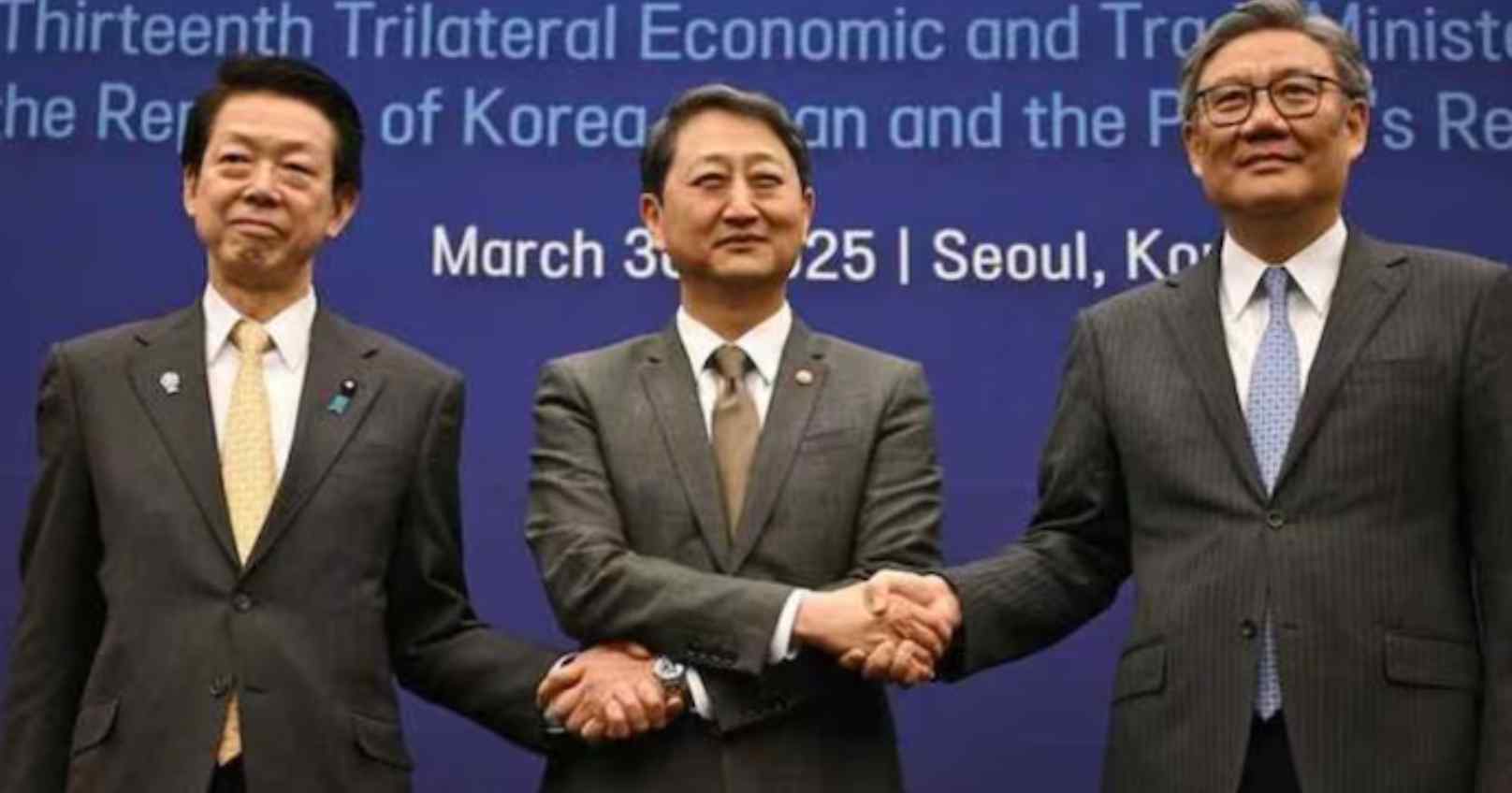China, Japan, and South Korea have reached an agreement to jointly address the impact of US tariffs, according to a social media post linked to Chinese state broadcaster CCTV on Monday.
The decision was finalized on Sunday following the first economic talks between the three nations in five years. The discussions focused on strengthening regional trade cooperation as the three leading Asian exporters brace for additional tariffs expected to be introduced by US President Donald Trump.
Trump has designated April 2 as "Liberation Day," during which he plans to impose new tariffs or taxes on imported goods. He claims these measures will reduce America's reliance on foreign products. His strategy includes implementing 'reciprocal' tariffs, mirroring the trade duties that other countries impose on US exports.
These tariffs are part of escalating trade tensions between the US and its key economic partners, including China, Japan, and South Korea.
During the meeting, officials noted that Japan and South Korea would source semiconductor raw materials from China, while China aims to purchase chip products from both nations.
A post by the Chinese social media account Yuyuan Tantian stated that the three countries had agreed to strengthen supply chain cooperation and continue discussions on export controls. The goal is to ensure smooth trade operations despite mounting economic pressures resulting from US tariff policies.
Potential Free Trade Agreement
Beyond responding to US trade measures, trade representatives from China, Japan, and South Korea also explored the possibility of establishing a trilateral free trade agreement (FTA).
The ministers agreed to collaborate on enhancing regional and global trade partnerships through a potential FTA, which could further deepen economic ties among the three countries.
These efforts to strengthen alliances come just ahead of President Trump’s announcement of additional tariffs, which he has framed as part of his "Liberation Day" initiative aimed at reshaping Washington's trade policies.







